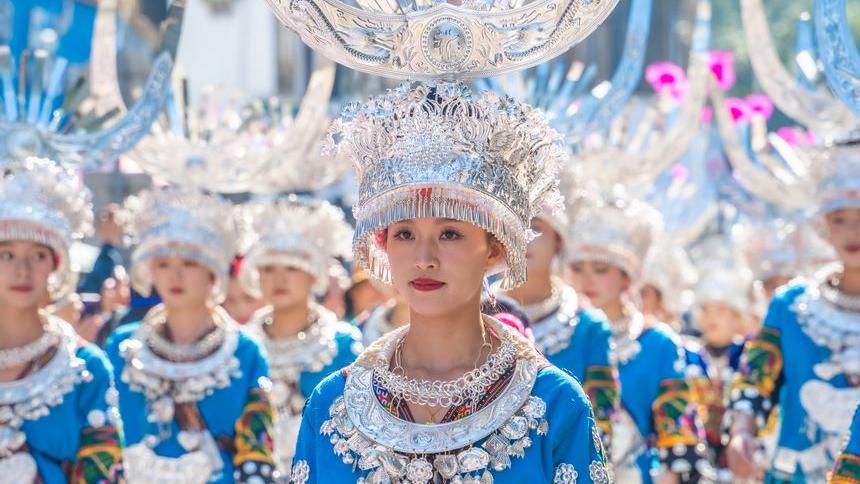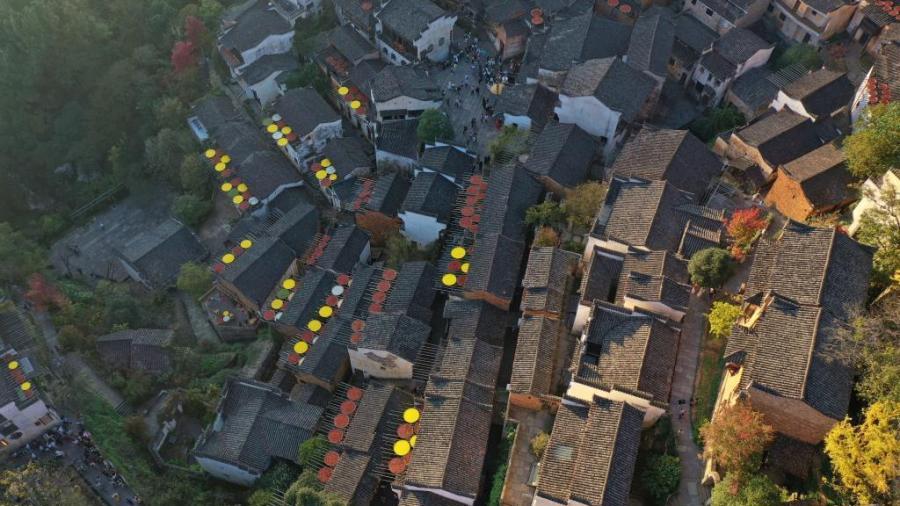Xi's cultural exchange footprints: the story of an elderly Brazilian
The Brazilian city of Rio de Janeiro on the Atlantic coast is as colorful and splendid as an oil painting, with tropical charm everywhere.
In 2021, Qiao Jianzhen, who works for the Confucius Classroom in this beautiful city, received a precious collection. It consists of the books and materials of Carlos Tavares, a 97-year-old man who studied and introduced China during his lifetime before passing away in the same year. Part of this collection has now been transported to China for permanent preservation.
Tavares often referred to himself as "a Brazilian with a Chinese heart."
On July 16, 2014, Chinese President Xi Jinping mentioned Carlos Tavares while addressing the Brazilian National Congress during a visit to Brazil.
"For over 40 years, he has devoted himself to China-related studies, written eight books and over 500 articles, and delivered hundreds of speeches about China. Many Brazilians have got to know and understand China through Tavares' words. When asked why he did it, he said, 'I simply want to introduce China and let more people know about the country. This is my only intent.'"
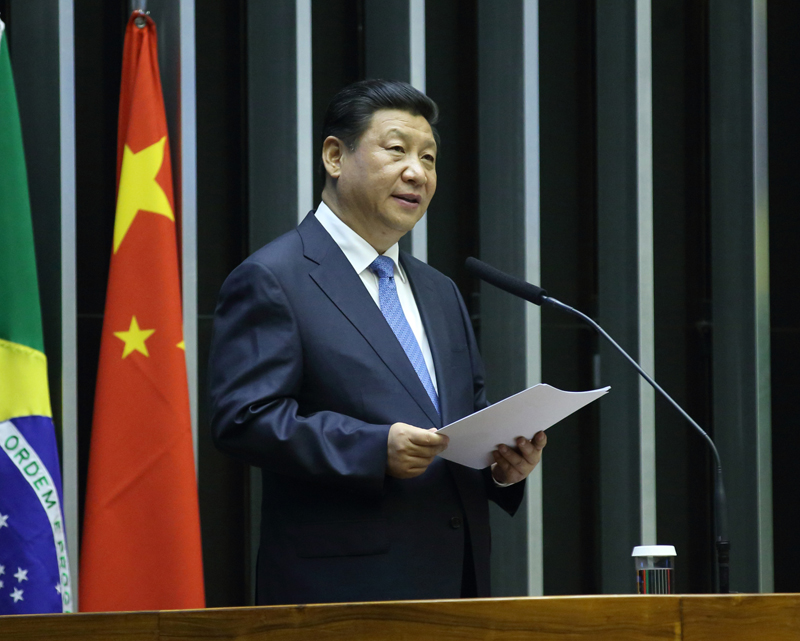
Chinese President Xi Jinping delivers a speech at the Brazilian National Congress in Brasilia, Brazil, July 16, 2014. (Photo/Xinhua)
Tavares' interest in a distant country in East Asia is no coincidence. Despite the long geographical distance across oceans and hemispheres, China and Brazil have a rich history of friendly exchanges.

Carlos Tavares reviews books he wrote about China at his home in Rio de Janeiro, Brazil, October, 2019. (Photo/Xinhua)
Xi also shared a story from 200 years ago. At that time, the first group of Chinese tea farmers traveled across the ocean to grow and teach the art of tea cultivation in Brazil. Decades later, Brazilian-produced tea received widespread acclaim at the Vienna World's Fair in 1873.
Few people know that Brazil, known for its coffee, was the third country in the world to master tea farming methods. Back then, Chinese tea farmers generously shared their expertise, planting the seeds of friendship between the two great civilizations.
Today, in Tijuca National Park in Rio de Janeiro, there stands a "Chinese Pavilion." With its uniquely styled eaves, pillars and a pointed roof, it sits gracefully among lush greenery, attracting countless visitors. The municipal government constructed this pavilion in 1903 to commemorate the Chinese tea farmers, symbolizing the bond "forged by tea" between the two nations.
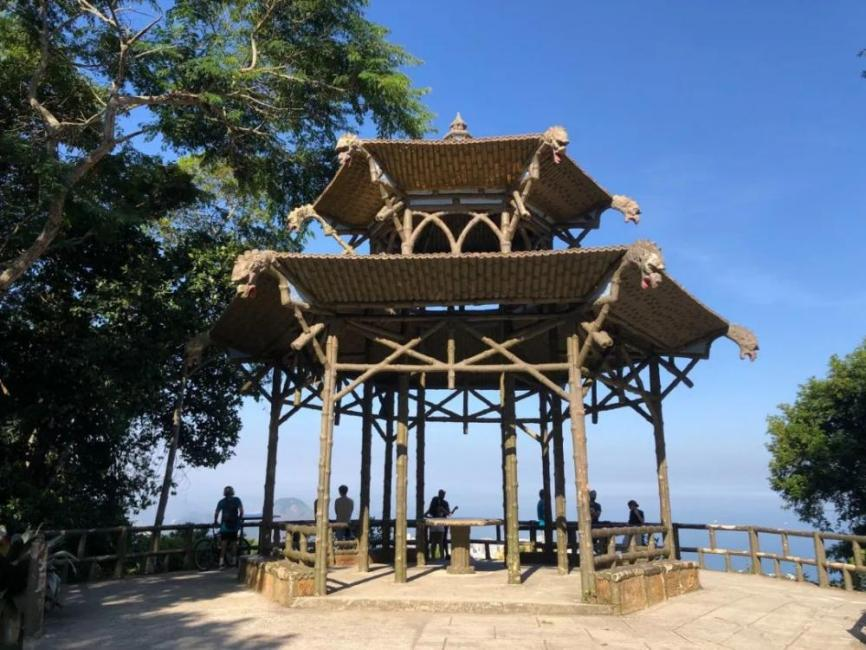
The "Chinese Pavilion," built by the municipal government of Rio de Janeiro to commemorate Chinese tea farmers, stands in Tijuca National Park in Rio de Janeiro, Brazil. (People's Daily/Chen Yiming)
Brazil has always warmly embraced Chinese culture. Not only has it produced Chinese tea, but it also nurtures a deep affection for China. Xi mentioned that Chinese master painter Zhang Daqian lived in Brazil for 17 years, during which time he painted masterpieces such as A Thousand Miles of the Yangtze River, Huangshan Mountain and Yearning for Home at his residence, Ba De Garden.
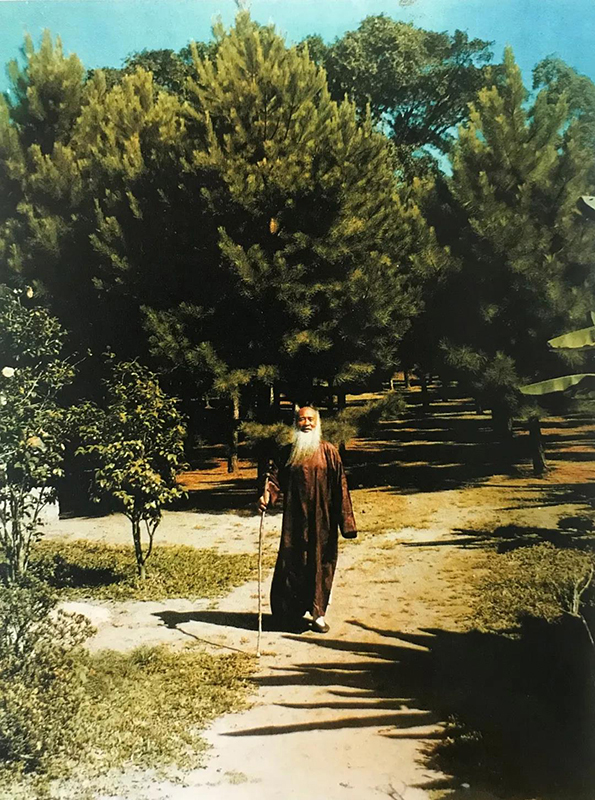
Zhang Daqian strolls through the pine forests of Ba De Garden in Brazil. (Photo/Wang Zhiyi)
This is a country that continues to foster mutual connections with China. In China, Brazilian TV dramas like Escrava Isaura captivated audiences in the 1980s, while Brazilian music and dance have become increasingly popular among young Chinese. In Brazil, with the rising enthusiasm for Chinese language and culture, Brazil has become the Latin American nation with the most Confucius Institutes and Classrooms, attracting numerous students.
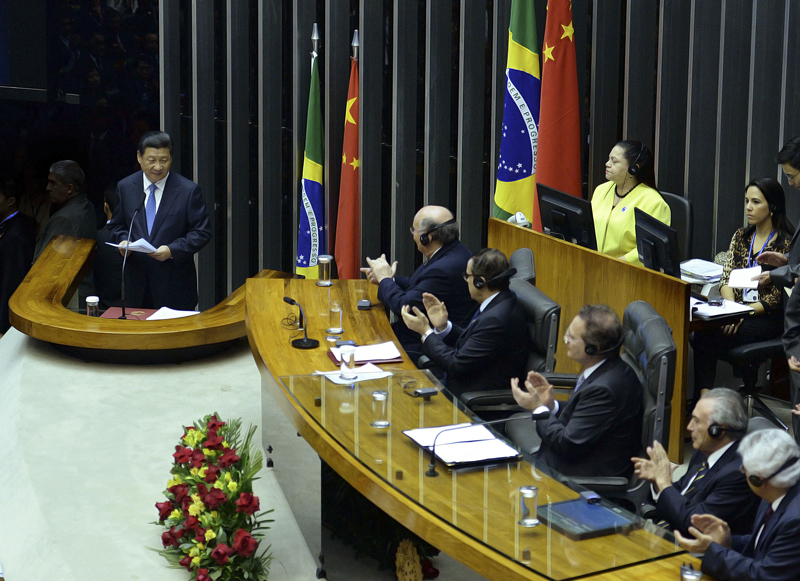
Chinese President Xi Jinping delivers a speech at the Brazilian National Congress in Brasilia, Brazil, on July 16, 2014. (Photo/Xinhua)
Then-Senate President Renan Calheiros remarked to Xi, "You are the foreign leader who has received the 'most applause to date' in the National Congress."
The speech was broadcast live across Brazil and listened to by countless citizens. During Xi's visit, Brazil's streets and alleys were adorned in the vibrant red of China.
From the distant past to the present, beautiful stories of China and Brazil have continued to unfold, witnessing and advancing the ever-growing relationship between the two countries.
Photos
Related Stories
- A letter from a Brazilian high school student
- Xi congratulates commissioning of China's deep-ocean drilling vessel
- Xi calls for promoting synergy between China's Belt and Road Initiative, Brazil's development strategies
- Xi calls on China, Brazil to work with others in Global South to firmly safeguard developing nations' common interests
- Xi says China to launch Global Cross-Border Data Flow Cooperation Initiative
Copyright © 2024 People's Daily Online. All Rights Reserved.








